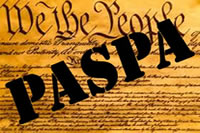Indian Casinos May Have Something To Say About All This Legalized Sports Betting
 In the rush to set the table for the increasingly inevitable PASPA (Professional and Amateur Sports Protection Act, 1992) repeal, several states are pushing through legislation to make sportss betting legal the very moment any federal ban is overturned. Two such states, California and Oklahoma, have faced an unexpected hurdle from an ancient adversary, and while it’s no surprise that they forgot about the Indian, the Indian never forgot about them.
In the rush to set the table for the increasingly inevitable PASPA (Professional and Amateur Sports Protection Act, 1992) repeal, several states are pushing through legislation to make sportss betting legal the very moment any federal ban is overturned. Two such states, California and Oklahoma, have faced an unexpected hurdle from an ancient adversary, and while it’s no surprise that they forgot about the Indian, the Indian never forgot about them.
In most states that offer legal gambling storefronts, there is a heavy (and sometimes exclusive) tribal casino presence. Per the Indian Gaming Regulatory Act (IRGA, 1988), nearly 250 tribal governments in 29 states own and operate casinos across the United States. Most tribes pay their “host state” governments for the privilege via revenue-sharing agreements, which in turn gives those tribes various rights and protections when it comes to regulations and allowable competition on the gaming circuit. These agreements vary in meaningful ways from state to state and tribe to tribe; there are dozens of unique compacts in place throughout America, each with different regulations, standards, pay rates, exclusivity protections, and so on.
Apparently, the natures of these various agreements were not addressed by California assemblyman Adam Gray in late July when he became the newest lawmaker to try to undercut PASPA. So, too, was this reality lost on Oklahoma’s Jon Echols (R, District 90), who claims the steps are sensible if carried out “in a regulated, secure, safe fashion that then would generate revenue for the state without a tax increase.” To Echols’ credit, gutting PASPA and returning the purview of legality re sports betting back to the states is indeed all of those things. But once again, the natives are an afterthought.
Because Gray hopes those natives will “sell” Manhattan for a pittance of beads and bullshit one more time.
Ever since the IRGA and its compacts, that framework has been modified and codified into a muddy mess, with new technologies and gaming styles conveniently falling outside the scope of gaming secured exclusively by the tribes. Daily fantasy sports (DFS) and eSports have already been a bone of contention between the tribes and the states, with an Oklahoma coalition of 33 tribes successfully blocking a proposal to legalize and regulate the former. Essentially, states representatives across the country – highlighted by Gray and Echols – have sought to usurp the industry to the Indians’ detriment.
This time, however, those Indians understand the nature of European-style contracts: They have largely held out for more favorable terms. Tulsa attorney Michael McBride says plainly that any action the states take on preemptively legalizing sports betting “could be a potential breach of the compacts.” In Oklahoma, that would put on shaky ground a financial framework that has generated over $1 billion for the state over the last ten years.
The contributions of Indian casino revenue is even greater in California, where one tribal attorney of note posits that action on sports betting that doesn’t address tribal exclusivity or seek tribal input on legislation would probably end up in court, as the tribes could escalate their retaliation to the point where they simply refuse to pay their agreed-to revenue shares. After all, if one party breaches a contract, the contract dissolves. The tribes would have a valid argument to make, at the very least, a significant pause in payments.
But this isn’t a crisis. Not yet, at least. Indian casinos simply wish to be a part of the process. As a whole, their businesses and financial earnings represent fully half of the entire American gambling industry. They are on equal ground in terms of impact, so they wish to be on equal grounds in terms of consideration.
At the end of the day, Indian casinos and their tribal operators are likely to play a significant part in crafting the sports betting legislation that seems to be spitballing and snowballing through every statehouse in these waning days of PASPA. Their contributions have been too great, and their histories too replete with backstabbing nonsense, for them to get the short end of the stick on legalized sportsbooks.
“Indian giving” is a bad look.
Back to BestUSASportsbooks.com